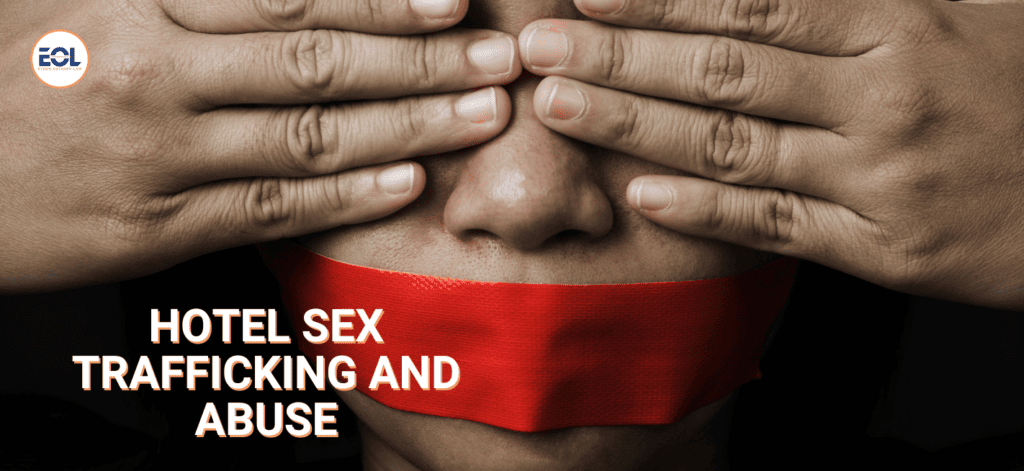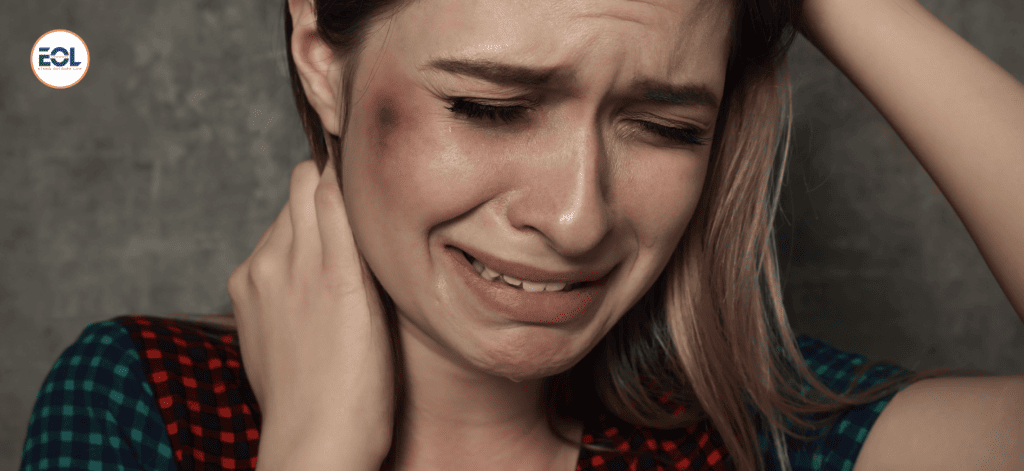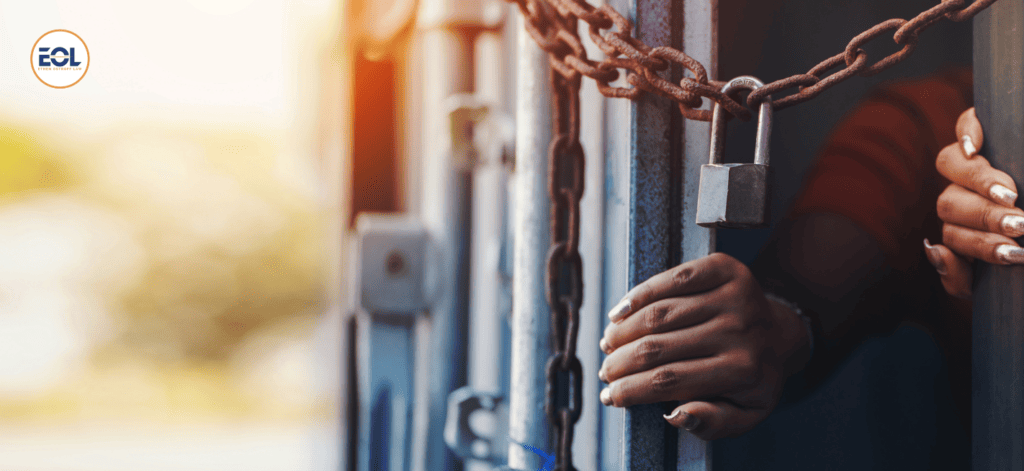Hotel Sex Trafficking Lawsuit | Legal Action Against Exploitation
Sex trafficking is a heinous crime that continues to plague our society, often hiding in plain sight within hotels and other hospitality establishments. Victims of hotel sex trafficking endure unimaginable suffering. It’s our collective responsibility to raise awareness and take legal action against this exploitation and grave injustice. In this article, Ethen Ostroff Law explores the alarming rise of hotel sex trafficking, the legal avenues available to combat it, and how victims can seek justice through a hotel sex trafficking lawsuit.
Human Trafficking: A Modern-Day Slavery
Human trafficking is a form of modern slavery where people are coerced into labor or sex through force or deceit. This global crime exploits individuals of all genders, ages, and backgrounds for profit. Shockingly, it thrives in legal industries like tourism, agriculture, hotels, airlines, and entertainment.
Forms of Human Trafficking
Understanding the various forms of human trafficking is essential to combat this violation of human rights effectively. Trafficking can take these forms:
- Child labor: Children are forced into exploitative work, often in agriculture and manufacturing, violating child labor laws.
- Child soldiers: Children are compelled into armed conflicts and coerced into violent acts, facing physical and emotional abuse.
- Commercial sexual exploitation of children: Children are coerced into sex acts like prostitution or pornography, a specific form of trafficking targeting them.
- Debt bondage: Individuals are forced to work to repay an impossible debt. Debt bondage is common in agriculture, manufacturing, or domestic work.
- Forced labor: Individuals are made to work in various industries against their will in dangerous conditions without fair pay.
- Forced marriage: Individuals are forced into marriage, often for exploitation, enduring abuse, and coerced sexual acts.
- Involuntary domestic servitude: Individuals are forced to work as domestic servants in private homes, suffering isolation, abuse, or emotional harm.
- Sex trafficking: Individuals are coerced into sex acts like prostitution or pornography, often involving multiple partners or locations like brothels or massage parlors. Victims can be of any gender or age.
Understanding Hotel Sex Trafficking
Hotel sex trafficking is a dark form of human exploitation that preys on vulnerable individuals, especially women and children, within hotels, motels, and other hospitality spaces. In these horrifying situations, traffickers force their victims into prostitution and other forms of sexual exploitation, often promoting their services online or through escort networks. Crucially, these heinous activities take place discreetly within hotels, often unbeknownst to the management, highlighting the hidden and deeply troubling nature of this crime.
The Alarming Statistics
Hotels and motels in the United States are hotspots for sex trafficking due to their easy access, cash transactions, and limited supervision. According to various sources:
- A 2018 Polaris study revealed that over 60% of sex trafficking victims were forced into prostitution in hotels.
- Among the 3,000 commercial sex trafficking cases prosecuted by the federal government, 46% took place in hotels.
- Hotels are implicated in nearly 60% of reported human trafficking cases globally (Global Slavery Index).
- In 2020, over 10,000 human trafficking cases were reported, 72% of them involved sex trafficking (The National Human Trafficking Hotline).
- In 2021, 80% of known-location federal sex trafficking cases (54 new cases) occurred in hotels (The National Human Trafficking Hotline).

Why Traffickers Use Hotels
Traffickers prefer hotels for their illegal activities due to:
- Anonymity: Hotels host diverse guests, offering traffickers a broad victim pool without arousing suspicion.
- Discreet environment: Private hotel rooms enable traffickers to operate covertly, away from public view.
- Lack of security: Some hotels lack proper security, allowing traffickers to operate without hindrance.
- Transience: Guests’ short stays help traffickers avoid detection, allowing them to move victims between locations.
Usual Victims of Hotel Sex Trafficking
Victims of hotel sex trafficking can be anyone, but certain groups are at higher risk:
- Homeless individuals: Limited resources and support increase their vulnerability.
- Immigrants and refugees: Lack of familiarity and fear of deportation make them vulnerable.
- Individuals with limited education: Limited job options increase their risk.
- Isolated individuals: Lack of social connections makes them easy targets for manipulation.
- Minors: Their manipulability puts them at risk.
- People living in poverty: False promises of a better life trap them into exploitation.
- People with mental health challenges: Their susceptibility makes them easy targets for control.
- Survivors of abuse or trauma: Past experiences make them vulnerable to manipulation.
- Women and girls: Societal inequalities and vulnerabilities make them susceptible.
Tactics Used by Traffickers in Hotels
Human traffickers employ several tactics in hotels, such as:
- Engaging in commercial sex: Some trade sex to meet basic needs like rent or family support.
- False promises: Offering a better life through jobs, education, or relationships.
- Online deception: Using the internet, often impersonates someone trustworthy.
- Posing as business managers: Operating under escort services, they recruit victims.
- Seduction and grooming: Building trust and vulnerability for exploitation.
- Threats and force: Controlling victims to prevent their escape.
- Using current victims: Coercing or promising others to recruit new victims.
Indicators of Hotel Sex Trafficking
Hotel staff play a vital role in spotting potential trafficking situations. Key indicators include:
- Constant supervision. Guests never leaving rooms alone.
- Days of no service or “Do Not Disturb” signs.
- Guests accompanied by someone speaking for them.
- Guests with minimal belongings during check-in.
- Frequent visitors. Many guests, especially at odd hours.
- Inappropriate clothing, like revealing outfits.
- Late-night check-ins.
- Minors in adult spaces, like bars.
- Multiple men entering rooms, especially late at night.
- Overly strict room security measures.
- Paying with cash or prepaid credit cards.
- Physical signs like visible injuries, malnourishment, fear, abuse, or anxious behavior, especially in women.
- Renting multiple rooms close together.
- Unusual bar behavior, like waiting alone and picked up by a male.

Legal Obligations of Hotels to Prevent Sex Trafficking
Hotels are legally obligated to prevent sex trafficking on their premises. They must fulfill these duties to prevent sex trafficking:
- Awareness campaigns: Display posters to raise awareness in public areas.
- Documentation: Staff must record and report suspicious behavior.
- Law Enforcement: Collaborate closely with local authorities.
- Liability: Hotels are accountable under the Trafficking Victims Protection Act (TVPA) and must maintain safe premises.
- Policies: Implement measures like ID checks, age requirements, and monitoring guest numbers.
- Supply chains: Ensure suppliers aren’t involved in trafficking.
- Training: Educate staff to recognize signs, define trafficking, identify vulnerable individuals, and understand their reporting roles.
Legal Consequences for Hotels
Hotels neglecting sex trafficking prevention can face serious legal consequences, including:
- Civil penalties: Fines if staff don’t report trafficking.
- Criminal liability: Criminally liable under the Trafficking Victims Protection Act (TVPA).
- Employee penalties: Staff involved may face consequences.
- Lawsuits: Might lead to policy changes and staff training for negligence.
- Victim liability: Hotels may be held accountable if they are aware of trafficking.
Supporting Hotel Sex Trafficking Victims
Supporting victims of hotel sex trafficking is vital for their recovery. Here’s how individuals and communities can help:
- Advocacy: Back stricter laws penalizing traffickers and businesses enabling trafficking.
- Awareness: Educate communities to spot signs, ensuring early detection and prevention.
- Collaboration: Report suspicious activities to law enforcement, aiding investigations.
- Donations: Contribute to anti-trafficking organizations, funding rescues, support, and advocacy.
Reporting Hotel Sex Trafficking
Reporting hotel sex trafficking is crucial to helping authorities combat this crime and support the victims. If you suspect or witness any suspicious activity related to sex trafficking in a hotel, you can report it to the following organizations and hotlines:
- Anonymous online platforms. Report trafficking cases anonymously in some countries online.
- Anti-trafficking NGOs. Seek guidance from these organizations for reporting and support.
- Hotel management. Share suspicions discreetly, involving law enforcement if needed.
- International hotlines. Contact global hotlines like Polaris Project and ECPAT International if you are outside the United States.
- Local police. In emergencies, call your local police or emergency number (e.g., 911 in the United States).
- National hotline (United States). Report tips at 1-888-373-7888 or text 233733 (BeFree) for 24/7 assistance.
Hotel Sex Trafficking Lawsuits
Victims of hotel sex trafficking can seek justice and hold both traffickers and hotels accountable for neglect. Laws in many places hold hotel owners liable for ignoring suspicious activities. Legal action allows victims to claim damages and shows that supporting criminal activities won’t be tolerated.
Hotel sex trafficking lawsuit hold hotels accountable for permitting sex trafficking. They can result in penalties and settlements. Big chains like Hilton, Wyndham, and Marriott have faced such suits. These cases claim hotels knew about trafficking but didn’t act, based on the Trafficking Victims Protection Act. The goal is to make parent companies responsible and stop them from turning a blind eye to trafficking in their properties.
Legal Options for Hotel Sex Trafficking Victims
If you or someone you know is a victim of hotel sex trafficking, consulting an attorney specializing in personal injury and human trafficking cases is crucial. They can help explore legal options, including:
- Negligent security claims: Victims can file claims if the hotel’s security lapses contribute to the trafficking incident.
- Premises liability lawsuits: Victims can sue hotels for unsafe conditions enabling crimes like trafficking.
- Trafficking Victims Protection Act (TVPA) lawsuits: TVPA allows victims to seek civil remedies against traffickers and those benefiting from trafficking.
How to File a Hotel Sex Trafficking Lawsuit
If you or someone you know is a victim of hotel sex trafficking, take these steps:
- Consult an attorney: Contact a lawyer experienced in sex trafficking cases to understand your rights and options.
- Gather evidence: Collect proof such as receipts, messages, or emails to support your case.
- Report to the police: File a police report to document the crime, strengthening your lawsuit.
- File a civil lawsuit: Sue the hotel or motel where trafficking occurred under the Trafficking Victims Protection Act, holding them liable.
- Seek compensation: Pursue damages, including economic, non-economic, punitive damages, and settlements, for the harm endured.

Compensation for Hotel Sex Trafficking Victims
Victims filing hotel sex trafficking lawsuit may receive compensation, including:
- Emotional distress
- Loss of enjoyment of life
- Lost wages
- Medical expenses
- Out-of-pocket expenses
- Pain and suffering
- Punitive damages
- Settlements
How Ethen Ostroff Law Can Help Victims
Ethen Ostroff Law provides strong support for victims of hotel sex trafficking. With our dedicated commitment to justice and compassionate approach, we empower victims to reclaim their lives and hold traffickers accountable. If you or someone you know has been a victim, contact us at 610-510-8883 for a free consultation. Together, let’s fight exploitation and create a safer society.
Hotel Sex Trafficking Frequently Asked Questions (FAQs)
Q1: Do human trafficking victims get paid?
A1: Yes, human trafficking victims in the United States may be entitled to compensation for their suffering and unpaid labor. Victims can seek compensation from traffickers for harm endured or due to lack of payment. However, obtaining compensation can be challenging as traffickers might be hard to locate or lack financial resources. Victims may also be eligible for government compensation.
Q2: What hotels are involved in the human trafficking lawsuit?
A2: National hotel chains named in lawsuits for alleged involvement in sex trafficking include:
- Best Western Hotels & Resorts
- Choice Hotels
- Days Inn
- Extended Stay America
- Hilton Worldwide Holdings
- Marriott International
- Motel 6
- Red Lion Inn & Suites
- Super 8
- Wyndham Hotels & Resorts
Q3: Is it true that hotels are being sued for human trafficking?
A3: Yes, hotels in the United States face lawsuits related to human trafficking. Over 110 civil sex-trafficking lawsuits have been filed in federal courts against major hotel chains like Wyndham, Red Roof Inns, and Choice Hotels International. These lawsuits aim to hold parent companies responsible for ignoring signs of trafficking on their properties.
Q4: How many human trafficking cases are prosecuted?
A4: In 2022, there were 15,000 human trafficking prosecutions worldwide, a slight increase from the previous year but lower than the 2015 record of 19,000. There were also 5,600 convictions, a small rise from the previous year.


